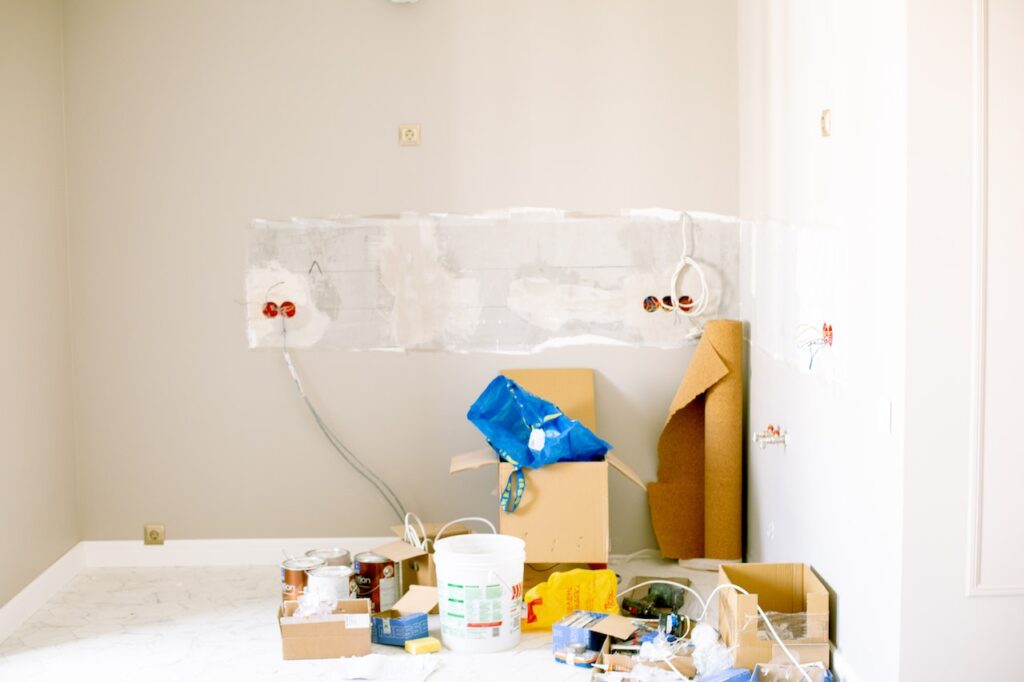
In this article, we explore ten innovative and eco-friendly home renovation ideas that not only enhance the functionality and aesthetics of your home but also reduce its environmental impact. From harnessing solar power to reimagining interiors with reclaimed materials, these ideas will inspire you to create a greener, more sustainable living environment that benefits both your family and the planet. So, let’s embark on a journey to discover how small, thoughtful changes can make a big difference in the way we live, one renovation at a time.
Energy-Efficient Windows and Doors:
Upgrading your home with energy-efficient windows and doors is a smart investment in sustainability and comfort. These modern fixtures are designed to minimize drafts, providing better insulation and reducing the need for excessive heating or cooling. As a result, you’ll not only enjoy a cozier home but also lower your energy bills and decrease your carbon footprint by using less energy to maintain a comfortable indoor climate.
Solar Panel Installation:
Embracing solar energy by installing solar panels on your roof is a powerful step toward sustainability. Solar panels convert sunlight into electricity, which can significantly reduce or even eliminate your reliance on non-renewable energy sources. Beyond the environmental benefits, solar panels can lead to substantial long-term savings on your energy bills, making them a sound eco-conscious choice for home renovation.
Insulation Improvement:
Improving your home’s insulation is an eco-friendly renovation that pays dividends in energy efficiency. Enhanced insulation in your walls and attic helps maintain a stable indoor temperature, reducing the need for heating in the winter and cooling in the summer. This translates to reduced energy consumption, lower utility bills, and a smaller carbon footprint. Plus, a well-insulated home provides year-round comfort for you and your family.
Low-Flow Plumbing Fixtures:
Swapping out conventional plumbing fixtures for low-flow alternatives is a simple yet impactful way to conserve water in your home. Low-flow toilets, showerheads, and faucets use less water without sacrificing performance, reducing your water usage and associated costs. By embracing these eco-friendly fixtures, you’ll not only save money but also contribute to water conservation efforts, especially in areas prone to drought.
Bamboo Flooring:
Choosing bamboo flooring for your renovation is a sustainable choice that doesn’t compromise on style or durability. Bamboo is a rapidly renewable resource, growing much faster than traditional hardwoods. Its strength and resilience make it an excellent option for flooring, and its eco-friendliness ensures you’re not contributing to deforestation. With various finishes and styles available, bamboo flooring adds a touch of natural elegance to your home while promoting responsible resource use.
Recycled or Reclaimed Materials:
Opting for recycled or reclaimed materials in your home renovation is a testament to sustainability and creativity. These materials, sourced from salvaged items or repurposed goods, not only reduce the demand for new resources but also infuse character and uniqueness into your living spaces. Whether it’s reclaimed wood for flooring, recycled glass for countertops, or repurposed industrial elements for décor, using these materials contributes to a more eco-conscious and distinctive home design.
LED Lighting:
Making the switch to LED lighting is a bright idea for both the environment and your pocketbook. LED bulbs are highly energy-efficient, using significantly less electricity than traditional incandescent bulbs. They last much longer, reducing the frequency of replacements and waste. Additionally, LEDs emit less heat, making them safer and helping to reduce cooling costs during hot months. By integrating LED lighting into your home renovation, you can illuminate your spaces with eco-friendly, cost-effective, and long-lasting brilliance.
Green Roof or Garden:
Creating a green roof or garden atop your home is a beautiful and eco-friendly renovation concept. These vegetated surfaces offer numerous advantages, such as improved insulation, stormwater management, and even a habitat for birds and insects. Green roofs can help regulate indoor temperatures, reducing energy consumption, while also mitigating the urban heat island effect. Plus, they add a touch of natural beauty to your home and contribute to local biodiversity, making your space a haven for wildlife.
Rainwater Harvesting System:
Installing a rainwater harvesting system is a water-wise renovation that benefits both your home and the environment. This system collects rainwater from your roof and stores it for various non-potable uses, such as irrigation, landscape maintenance, or even flushing toilets. By utilizing rainwater, you reduce your reliance on treated municipal water, which is energy-intensive to produce. Additionally, rainwater harvesting helps mitigate stormwater runoff, reducing the risk of flooding and contamination of local water bodies.
Smart Home Technology:
Integrating smart home technology into your renovation is a futuristic approach to sustainability. Smart thermostats, lighting controls, and home automation systems allow you to optimize energy usage and reduce waste. You can remotely monitor and adjust your home’s systems, ensuring lights and appliances aren’t left on unnecessarily. Moreover, these technologies often incorporate energy-saving features that can lead to substantial reductions in your overall energy consumption and expenses while enhancing the convenience and efficiency of your daily life.